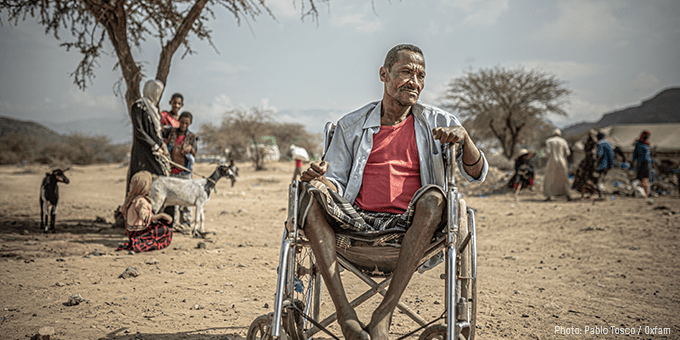Oxfam confirms the death of colleague Fathi Mahmoud Ali Salem Al-Zurigi in Yemen on the evening of Tuesday May 25, after a shooting incident on Monday May 24.
Fathi, a Yemeni citizen, 42, was traveling with another Oxfam colleague and a contracted driver when they were caught in what appears to be a crossfire at a checkpoint in southern Yemen, traveling to Aden. The three men were taken to hospital where Fathi succumbed to his injuries. The driver is still in intensive care, and stable; the second Oxfam staff member was discharged earlier in the day. Oxfam has no reason to believe the three people were targeted. All security protocols were being followed at the time of the incident.
Fathi had been with Oxfam for more than six years. He was the agency’s Senior Logistics Officer, working on Oxfam’s program response in Yemen.
“It is a heart-wrenching sadness to lose a colleague particularly in such terrible circumstances, someone who was working in his own home country for the humanitarian cause, trying to help his fellow citizens. Humanitarian workers across the world, like Fathi, risk their own lives every day. We stand in solidarity with them all. Our thoughts and sympathies are with Fathi’s family and loved ones,” said Oxfam International Executive Director Gabriela Bucher.









